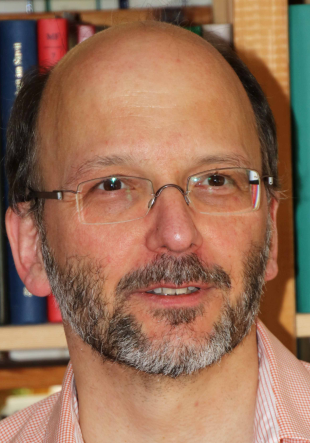The Sermons at the Council of Constance
Overview
The sermons at the Council of Constance (1414-1418) promise to provide valuable new insights into this church assembly if - as has not yet been done - they are examined in the sense of a cultural history of the political. It is therefore not only a matter of concrete arguments and scholarly traditions in the sense of previous research into the history of theology and intellectual history, but rather of the function of sermons in political communication at the council, their role in political negotiations and their use in decision-making. It is also important to determine how they shaped the self-image of the Constantiense and its participants as well as the reception and after-effects of the Council.
Sermons in historical research
Sermons were the only mass medium of the Middle Ages. Before the invention of printing, they were the only way to reach, inform, influence and mobilize many people at once for a specific purpose. For good reason, crusade projects relied on the medium of preaching, even organized preaching campaigns, to mobilize crusaders until the end of the 15th century. Preaching took place at princely courts, in monasteries and in cities, at councils and political gatherings, in everyday life and on festive occasions. In a society that essentially based its fundamental norms on religion, it was the specific task of sermons to offer listeners normative guidance, drawing on the Bible and the principles of the Christian faith. This concerned everyday life and knowledge of the content of the faith, but also specific events and plans.
Despite their importance, sermons have received little attention in historical studies, especially in Germany. From a positivist point of view, the sermon texts were unattractive because they rarely provided the hard facts sought. Heinrich Finke, the editor of the Council of Constance sources, printed sermons, but often only those parts that he considered relevant for the reconstruction of concrete events and conditions. From the perspective of intellectual and theological history, sermons were and are sometimes of interest insofar as they allow scholarly traditions and theological arguments to be uncovered.
New methodological approaches
New approaches that have stimulated historical scholarship in recent decades have not yet been applied to sermons. Above all, they have not yet been considered an important part of political culture in the late Middle Ages. This approach to a cultural history of the political (cf. Stollberg-Rilinger) is concerned with the fact that politics, its institutions and the forms in which it is practiced are not viewed in an essentialist way as something fixed, but rather as the expression and product of attributions of meaning, normative ideas and interpretations, which in turn have an effect on the institutions and forms of politics. In other words, the cultural history of the political reconstructs the meaningfulness of political acts for contemporaries.
The Council of Constance and its sermons
In view of this situation, the Council of Constance is an obvious place to examine the significance of sermons in terms of a cultural history of the political. When several hundred clergymen, princes and scholars from all over Europe met in Constance, this heterogeneous group of participants faced many serious problems. The Great Schism, which had already lasted 36 years, had to be ended and the unity of the church restored, action had to be taken against heretics and reforms had to be initiated in the church. In order to find solutions and reach a consensus on the measures to be taken, the Council Fathers relied on communication. The many treatises, which commented in particular on questions of ecclesiology, the rights of the council and church reform, have been well researched.
However, little attention has been paid to the approximately 330 documented sermons. A handwritten text exists for around half of them. These are Latin “sermones ad clerum”. This material has been well recorded in preliminary work (Acta Concilii Constantiensis, ed. by Finke; Schneyer; Kreuzer.) In particular, Chris Nighman and Phillip Stump compiled a catalog of council sermons, which was published on the Internet in 2007 in the form of pdf files. With the consent of Nighman and Stump, the editor of the project will soon publish the material in the form of a data base.
Key Facts
- Project type:
- Sonstiger Zweck
- Project duration:
- 07/2020 - 12/2023

